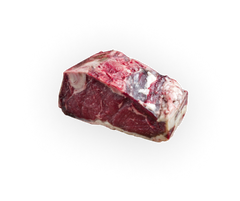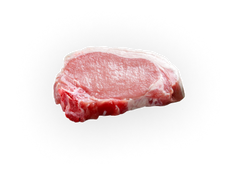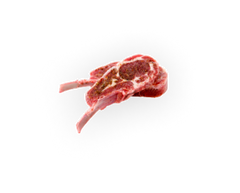Bison is a lean and nutritious protein source that has been consumed by indigenous populations for thousands of years. Recently, bison has been gaining popularity as a healthier alternative to traditional red meat like beef, pork, and lamb. In this blog post, we'll explore the various health benefits of eating bison.
- Low in Fat and Calories
Bison meat is leaner than beef, with less than half the fat and fewer calories. According to the USDA, a 3-ounce serving of bison has 122 calories and 2.42 grams of fat, while the same serving of beef has 179 calories and 7.86 grams of fat. Eating bison can help you manage your weight and reduce your risk of heart disease and other health problems associated with high-fat diets.
- High in Protein
Bison is a great source of protein, which is essential for building and repairing tissues in the body. A 3-ounce serving of bison contains 23 grams of protein, which is more than the same serving size of chicken or pork. Eating bison can help you meet your daily protein needs and support muscle growth and recovery.
- Rich in Nutrients
Bison is packed with essential nutrients like iron, zinc, and vitamin B12. Iron is important for transporting oxygen throughout the body, while zinc supports immune function and wound healing. Vitamin B12 is crucial for nerve function and the production of red blood cells. Eating bison can help you meet your daily nutrient needs and maintain optimal health.
- Free of Hormones and Antibiotics
Unlike conventionally raised beef, bison is typically raised without the use of hormones or antibiotics. This means that you can enjoy the health benefits of bison without worrying about harmful additives. Bison is also typically grass-fed and finished, which can enhance the nutritional quality of the meat.
- Sustainable and Environmentally Friendly
Bison is a more sustainable and environmentally friendly meat source than beef. Bison are well adapted to grazing on grasslands and require less land and water than cattle. They also produce less methane, a potent greenhouse gas that contributes to climate change. Eating bison can help reduce your carbon footprint and support sustainable agriculture.
In conclusion, bison is a delicious and nutritious protein source that offers a range of health benefits. It's low in fat and calories, high in protein, rich in nutrients, free of harmful additives, and environmentally friendly. Whether you're trying to manage your weight, support your health, or reduce your carbon footprint, bison is a great choice. Try adding bison to your diet today and experience the many benefits for yourself!










